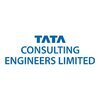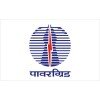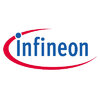Assistant Engineer
600+ Assistant Engineer Interview Questions and Answers

Asked in Nagarjuna Construction Company

Q. How do we measure the slump of concrete during casting? Is there a difference in slump value when casting concrete at a height of 50 meters or in high-rise buildings?
Slump for casting of concrete is measured using a cone. Slump value may decrease as height increases in high rise buildings.
Slump is measured using a cone and the difference between the height of the cone and the height of the concrete after it settles is the slump value.
As height increases in high rise buildings, the pressure on the concrete increases, which may cause the slump value to decrease.
To maintain the desired slump value, additives such as plasticizers or superplas...read more

Asked in Nagarjuna Construction Company

Q. Why do we take only 1 set of cube samples when casting concrete of 5 cubic meters or less?
Only 1 set of cube sample is taken at a casting of concrete of 5 or less than 5 Meter cube to save cost and time.
Taking multiple samples would increase the cost of testing.
The strength of concrete is usually consistent within a small volume.
ASTM C31 allows for only 1 set of samples for small volume concrete.
If the first set of samples fails, additional samples can be taken for verification.
Assistant Engineer Interview Questions and Answers for Freshers

Asked in Randstad

Q. 1.Define the term capacitance & inductance 2.what is Rectifier 3. What is referred to the electron in the outer orbit 4.what kind of cable used in transmission line 5.Explain Rlc circuit 6.what happen if series...
read moreCapacitance is the ability of a system to store an electric charge, while inductance is the ability of a system to store magnetic energy.
Capacitance is measured in farads and is determined by the physical characteristics of the capacitor.
Inductance is measured in henries and is determined by the physical characteristics of the inductor.
A rectifier is an electrical device that converts alternating current (AC) to direct current (DC).
Electrons in the outer orbit of an atom are ...read more

Asked in Steel Strips Wheels

Q. What is the 5S methodology, and why is it important in an industry?
5S is a methodology used in industries to improve workplace organization and efficiency.
5S stands for Sort, Set in Order, Shine, Standardize, and Sustain.
It focuses on organizing the workplace, eliminating waste, and maintaining cleanliness.
Sort involves removing unnecessary items from the workplace.
Set in Order involves arranging necessary items in a logical and efficient manner.
Shine involves cleaning and maintaining the workplace.
Standardize involves establishing guideline...read more

Asked in TCE

Q. What provisions do you check when designing a beam/column according to the IS Codes?
Provisions checked for designing a beam/column according to IS Codes
Cross-sectional dimensions
Minimum reinforcement
Maximum spacing of bars
Clear cover to reinforcement
Grade of concrete and steel
Load-bearing capacity
Bending moment and shear force
Deflection limits

Asked in Nagarjuna Construction Company

Q. If concrete casting is interrupted by two days of rain, what bonding agent is suitable for recasting the concrete?
The right bonding agent for recasting of concrete after rain would be a polymer-modified cementitious bonding agent.
The surface should be cleaned and dried before applying the bonding agent.
The bonding agent should be applied in a thin layer using a brush or roller.
The recasting of concrete should be done within the specified time frame mentioned by the bonding agent manufacturer.
Examples of polymer-modified cementitious bonding agents are SikaLatex R and Ardex P 82.
Assistant Engineer Jobs




Asked in TCE

Q. What are the permissible deflection values in a structure according to IS provisions?
Permissible values for deflection in a structure according to IS provisions.
The maximum permissible deflection for a structure is L/180 for live load and L/325 for total load.
L is the span of the beam or slab in meters.
The deflection limit is to ensure the safety and comfort of the occupants of the structure.
The deflection limit varies for different types of structures and materials used.
For example, the deflection limit for a reinforced concrete beam is different from that o...read more

Asked in TCE

Q. Draw a Bending Moment diagram given a particular loading.
To draw a Bending Moment diagram, one needs to determine the reactions, calculate the shear force and integrate it to get the bending moment.
Determine the reactions at the supports
Calculate the shear force at each section of the beam
Integrate the shear force to get the bending moment
Plot the bending moment diagram
Share interview questions and help millions of jobseekers 🌟


Asked in TCE

Q. What are the permissible stresses in concrete and steel according to the IS codes?
Permissible stresses in concrete and steel as per IS codes.
Permissible stress in concrete is 0.67 times the characteristic strength of concrete.
Permissible stress in steel is 0.2 times the yield strength of steel.
For example, if the characteristic strength of concrete is 30 N/mm², then the permissible stress in concrete would be 0.67 x 30 = 20 N/mm².
Similarly, if the yield strength of steel is 415 N/mm², then the permissible stress in steel would be 0.2 x 415 = 83 N/mm².

Asked in TCE

Q. Is a gutter an example of open channel flow or closed pipe flow?
Gutter is an example of open channel flow.
Open channel flow is a flow of fluid in a channel with a free surface.
Gutter is an open channel that carries rainwater from roofs to the ground.
Closed pipe flow is a flow of fluid in a pipe with a closed surface.
Examples of closed pipe flow include water supply pipes and sewage pipes.

Asked in TCS

Q. What is an ideal diode? Draw its input-output characteristic curve.
An ideal diode is a theoretical diode that exhibits zero voltage drop when forward biased and infinite resistance when reverse biased.
An ideal diode acts as a perfect conductor when forward biased.
It allows current to flow in one direction with zero voltage drop.
When reverse biased, it acts as an open circuit with infinite resistance.
The input-output characteristic curve of an ideal diode is a vertical line at zero voltage for forward bias and a horizontal line at zero curren...read more
Asked in Helical Springs

Q. What is capa,hou many type poka yoke,8D,measuring instrument,drawing study,different v/s product audit and process audit,iatf 16949,msa,spc.
Capa, poka yoke, 8D, measuring instruments, drawing study, v/s product audit and process audit, IATF 16949, MSA, SPC.
CAPA stands for Corrective and Preventive Action
Poka Yoke is a mistake-proofing technique used in manufacturing
8D is a problem-solving methodology used in quality control
Measuring instruments are tools used to measure physical quantities
Drawing study involves analyzing engineering drawings to ensure accuracy
Product audit is an inspection of finished products, w...read more

Asked in UltraTech Cement

Q. How to planning personal development planning, professional goal setting ,long term goals &shorterm goals ,to act to time to time planning process ,take suggestions from seniors?
Personal development planning involves setting professional goals, both long-term and short-term, and regularly reviewing and adjusting them with input from seniors.
Start by identifying your long-term career goals, such as becoming a senior engineer or project manager.
Break down these long-term goals into smaller, achievable short-term goals, like completing a certification or gaining experience in a specific area.
Create a personal development plan outlining the steps needed ...read more

Asked in Hi Tech Projects

Q. What safety precautions during work Steel wastage control during making bbs and monitoring in site as per drawing.
Safety precautions include wearing appropriate PPE, following proper procedures, and regular equipment maintenance. Steel wastage control involves accurate BBS preparation and monitoring on site.
Wear appropriate PPE such as hard hats, safety glasses, and steel-toed boots
Follow proper procedures for handling equipment and materials
Regularly maintain equipment to ensure it is in good working condition
Prepare accurate BBS to minimize steel wastage
Monitor steel usage on site to e...read more

Asked in Cognizant

Q. If you have a cake in front of you, what is the minimum number of cuts you need to make to get 8 equal pieces?
To get 8 equal pieces from a cake, you need a minimum of 3 cuts.
The first cut divides the cake into two equal halves.
The second cut divides one of the halves into two equal quarters.
The third cut divides one of the quarters into two equal eighths.

Asked in Power Grid Corporation of India

Q. What happens when a fan rotates in the opposite direction?
When a fan rotates in the opposite direction, it reverses the airflow and can cause the fan to function improperly.
Reversing the direction of a fan can disrupt the intended airflow in a room.
In some cases, reversing the fan direction can lead to decreased cooling or heating efficiency.
Changing the fan direction can also affect the distribution of air in the room.
For ceiling fans, reversing the direction can change the direction of the downdraft or updraft.
It is important to c...read more

Asked in Mosanada FMS

Q. How many types of pumps are used in HVAC systems?
There are mainly two types of pumps used in HVAC systems: centrifugal pumps and positive displacement pumps.
Centrifugal pumps are commonly used in HVAC systems for circulating water or other fluids. They are efficient and have a simple design.
Positive displacement pumps are used for applications where a specific flow rate is required, such as in hydronic heating systems.
Other types of pumps used in HVAC systems include axial flow pumps, mixed flow pumps, and regenerative turb...read more

Asked in Shyam Sel & Power

Q. What type of bearing is used in a Rotary Air Lock Feeder (RALF) and a pump?
The type of bearing used in RALF and pump is usually a ball bearing or roller bearing.
Ball bearings are commonly used in RALF and pump applications due to their ability to handle radial and axial loads.
Roller bearings are also used in some applications where higher load capacity is required.
The specific type of bearing used will depend on the size and speed of the equipment.
Proper lubrication is important for the longevity and performance of the bearing.
Regular maintenance an...read more

Asked in Victora Auto Private Limited

Q. What is the least count of Vernier caliper, Micrometer, DVC, and DMM?
The least count of Vernier caliper, Micrometre, DVC, and DMM is the smallest measurement that can be read or measured using these instruments.
The least count of a Vernier caliper is typically 0.02 mm or 0.001 inch.
The least count of a Micrometre is usually 0.01 mm or 0.001 inch.
The least count of a DVC (Digital Vernier Caliper) depends on the specific model, but it is generally around 0.01 mm or 0.0005 inch.
The least count of a DMM (Digital Multimeter) depends on the range an...read more

Asked in ENGIE

Q. Which direction would you choose in the event of a fire or hazardous gas leak, and how would you determine that direction?
I will choose the direction opposite to the wind direction to avoid spreading of fire or gas leakage.
Choose direction opposite to wind direction
Avoid spreading of fire or gas leakage
Consider the location of people and property
Use appropriate firefighting equipment
Evacuate people from the affected area

Asked in Power Grid Corporation of India

Q. What are the lines connecting other countries in the North Eastern Region?
The lines connecting other countries in NER refer to the international borders and transportation routes.
The international borders of NER connect it with neighboring countries like Bhutan, China, and Myanmar.
Transportation routes like roads, railways, and airways also connect NER with other countries.
Examples of transportation routes include the India-Myanmar-Thailand Trilateral Highway and the India-Bhutan Friendship Road.

Asked in Vioma Motors

Q. What is engineering according to you?
Engineering is the application of scientific and mathematical principles to design and create solutions to real-world problems.
Engineering involves using scientific and mathematical knowledge to solve practical problems.
Engineers design and create solutions that improve the quality of life and make tasks more efficient.
Engineering encompasses various disciplines such as civil, mechanical, electrical, and software engineering.
Engineers apply their knowledge to develop new tech...read more

Asked in Amara Raja Energy & Mobility

Q. A customer ordered a 48V 300Ah battery bank, but the system voltage during I&C is 24V. How can we connect the battery bank to solve this issue, given that each cell is 2V, there are 24 cells, and the capacity i...
read moreTo connect a 48V 300Ah battery bank to a 24V timing system, you can use a DC-DC converter or series-parallel connection.
Use a DC-DC converter to step down the voltage from 48V to 24V.
Connect the battery banks in series-parallel configuration to achieve the desired voltage and capacity.
Ensure proper wiring and safety measures are followed during the connection process.

Asked in Vacmet India

Q. Define the different types of power factors, their uses, and values.
Power factor is a measure of how effectively electrical power is being used. There are three types: lagging, leading, and unity.
Lagging power factor occurs when the current lags behind the voltage waveform.
Leading power factor occurs when the current leads the voltage waveform.
Unity power factor occurs when the current and voltage waveforms are in phase.
Lagging power factor is common in inductive loads like motors, while leading power factor is common in capacitive loads like...read more

Asked in Mosanada FMS

Q. what is PPM, after how many months we have done the PPM of chiller, AHU, Pumps and other equipment.
PPM stands for Planned Preventative Maintenance. It should be done every 3-6 months for chillers, AHUs, pumps, and other equipment.
PPM is a proactive approach to maintenance to prevent breakdowns and prolong equipment life.
Chillers, AHUs, pumps, and other critical equipment should undergo PPM every 3-6 months.
Regular PPM helps in identifying potential issues early and ensures optimal performance of the equipment.
PPM involves tasks like cleaning, lubricating, inspecting, and t...read more

Asked in Infineon Technologies

Q. How do you handle a customer when you are unable to meet the deadline due to delivery time or a shortage of supply?
I would communicate openly with the customer, provide updates on the situation, and offer alternative solutions.
Communicate with the customer as soon as possible to inform them of the delay
Provide regular updates on the progress and expected timeline
Offer alternative solutions such as partial deliveries or expedited shipping options
Apologize for the inconvenience and assure the customer of your commitment to fulfilling their order

Asked in ENGIE

Q. What actions would you take if hydrogen gas were released in the plant while you are at work?
I will immediately inform the supervisor and follow the emergency protocol for handling hydrogen gas release.
Inform the supervisor immediately
Follow the emergency protocol for handling hydrogen gas release
Evacuate the area if necessary
Wear appropriate personal protective equipment
Ensure proper ventilation
Monitor the gas levels
Take necessary steps to prevent ignition sources

Asked in Tata Steel

Q. What is the composition of ductile iron?
Ductile iron is a type of cast iron that contains graphite in the form of nodules, making it more flexible and durable.
Ductile iron is also known as nodular cast iron or spheroidal graphite iron.
It is made by adding small amounts of magnesium or cerium to molten iron, which causes the graphite to form nodules instead of flakes.
This gives ductile iron its unique properties of high strength, toughness, and ductility.
It is commonly used in automotive and construction industries ...read more

Asked in JSW Steel

Q. What special precautions should be taken during mold filling in the rainy season?
Special precautions during mold filling in rainy season
Ensure proper drainage system to avoid water accumulation
Cover the mold to prevent rainwater from entering
Increase mold temperature to compensate for high humidity
Use mold release agents to prevent water from sticking to the mold surface
Inspect mold for any signs of water damage before and after filling

Asked in Power Grid Corporation of India

Q. How does power flow from one end to another?
Power flows from one end to the other through a closed circuit, following the path of least resistance.
Power flows through conductive materials such as wires or cables.
It is generated at a power source, such as a generator or a battery.
The power source creates a potential difference, or voltage, which pushes the electrons to flow.
The electrons flow from the higher potential end to the lower potential end.
The flow of electrons creates an electric current.
The current flows thro...read more
Interview Questions of Similar Designations
Interview Experiences of Popular Companies








Reviews
Interviews
Salaries
Users

















